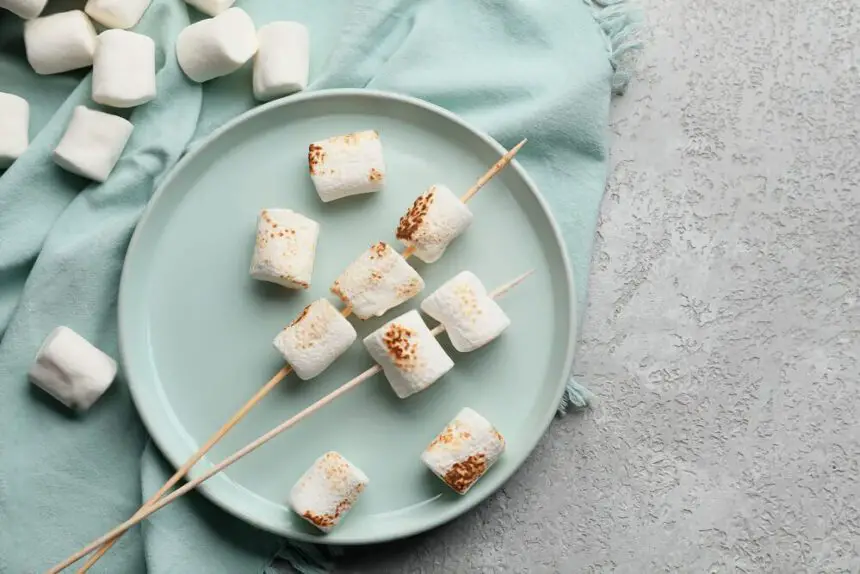Ever looked at a bag of marshmallows and wondered if your cat could share in the sugary fun? You’re not alone. As cat lovers, we’re always looking for new ways to treat our furry friends, but it’s crucial to know what’s safe and what isn’t. So, can cats eat marshmallows? Spoiler alert: they probably shouldn’t. Let’s dive into the nitty-gritty of why marshmallows are a no-go for your feline buddy.
What are Marshmallows?

Marshmallows are those fluffy, squishy treats that make hot cocoa dreamy and campfires nostalgic. They’re made from sugar, corn syrup, water, and gelatin, whipped into a light, airy texture. Sometimes, they have added flavors, colors, or even coatings of chocolate or coconut. Sounds delicious, right? For humans, sure. For cats, not so much.
Can Cats Eat Marshmallows?
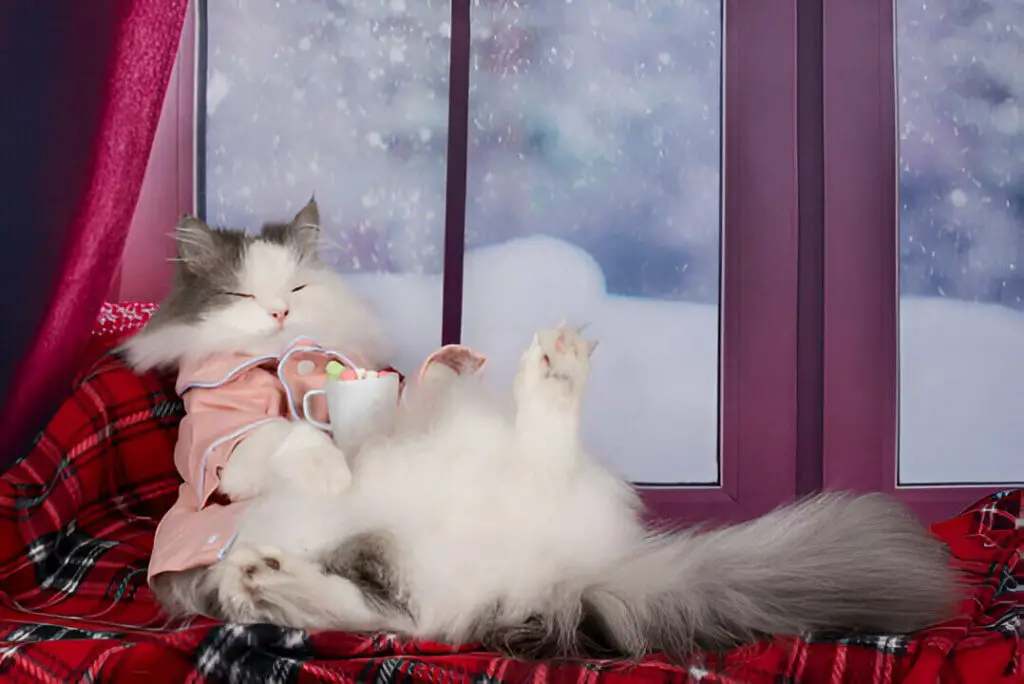
The Sugar Problem
First off, let’s talk sugar. Cats don’t have a sweet tooth like we do. They lack taste receptors for sweetness, which means they won’t even appreciate the sugary goodness of a marshmallow. More importantly, sugar can wreak havoc on their system. It can lead to obesity, diabetes, and dental problems. Imagine your kitty with a mouthful of cavities – not a pretty sight!
Sugar Overload
Think about it: a marshmallow is almost pure sugar. Even a tiny nibble can spike your cat’s blood sugar levels, potentially leading to hyperactivity followed by a crash. Over time, regular consumption of sugary treats can contribute to long-term health issues like weight gain and diabetes.
Digestive Woes
Cats are obligate carnivores, which means their bodies are designed to digest meat, not sweets. Their digestive system isn’t equipped to handle high amounts of sugar. Feeding them marshmallows can lead to upset tummies, diarrhea, and vomiting. Trust me, cleaning up after a cat with a sugar-induced stomach ache is no fun at all.
The Sticky Situation
Ever tried to eat a marshmallow and ended up with it stuck to your fingers? Imagine that happening inside your cat’s mouth or throat. Marshmallows are incredibly sticky, posing a significant choking hazard. Cats have small throats and airways, and something as gooey as a marshmallow can easily become lodged, making it hard for them to breathe or swallow.
Artificial Additives: A Red Flag
Marshmallows often contain artificial sweeteners, flavors, and colors. These additives can be toxic to cats. Xylitol, a common sugar substitute, is particularly dangerous. It can cause a rapid release of insulin, leading to hypoglycemia (low blood sugar), seizures, liver failure, or even death in severe cases.
The Mystery of Artificial Colors
Those pretty pink and blue marshmallows might look fun, but the dyes used can be harmful. Artificial colors have been linked to various health problems in pets, including allergies and behavioral changes. Plus, who wants their cat ingesting chemicals anyway?
Are there any Benefits of Cats Eating Marshmallows?
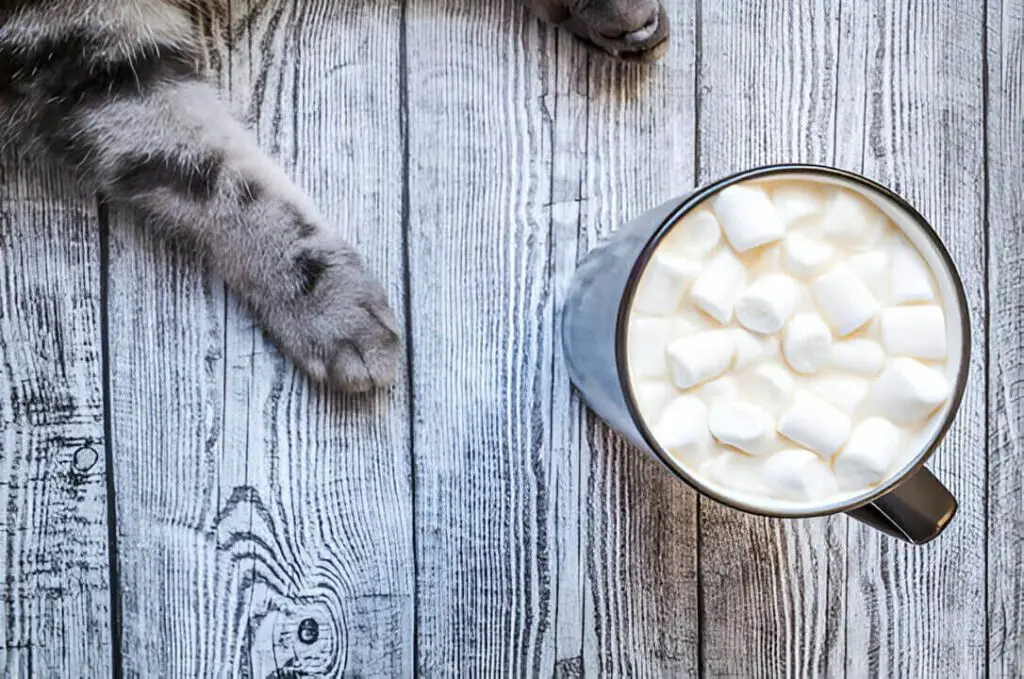
While there are no real nutritional benefits to cats eating marshmallows, there may be some benefits to offering them as a treat in moderation. Many cats enjoy the taste and texture of marshmallows, and offering them as an occasional treat can be a way to bond with your cat and provide them with a special treat.
Offering your cat a treat can also be a way to reinforce positive behaviors, such as using the litter box or scratching post. If your cat is particularly food-motivated, you can use a small piece of marshmallow as a reward for good behavior.
Additionally, if you have a cat that is a picky eater or has a reduced appetite due to illness, offering them a small piece of marshmallow may be a way to encourage them to eat. However, it’s essential to ensure that marshmallows are not used as a substitute for a balanced and nutritious diet.
What If Your Cat Eats a Marshmallow?
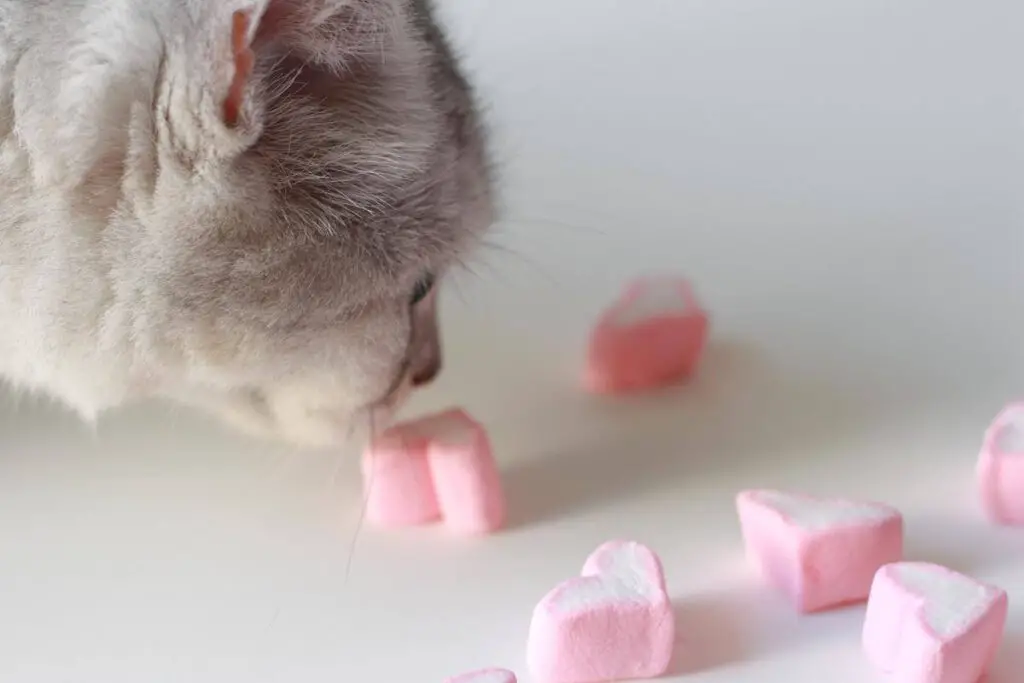
Accidents happen. Maybe your kitty snuck a marshmallow while you weren’t looking. If this happens, don’t panic. A single marshmallow likely won’t be fatal, but you should keep an eye on your cat for any signs of distress.
Symptoms to Watch For
- Vomiting or diarrhea: These are the most common immediate reactions.
- Lethargy: Your cat might become unusually tired or listless.
- Excessive drooling: This can indicate nausea or difficulty swallowing.
- Loss of coordination: If your cat seems unsteady on its feet, it could be a sign of a more serious reaction.
If you notice any of these symptoms, contact your vet immediately. Better safe than sorry!
Healthier Alternatives to Marshmallows
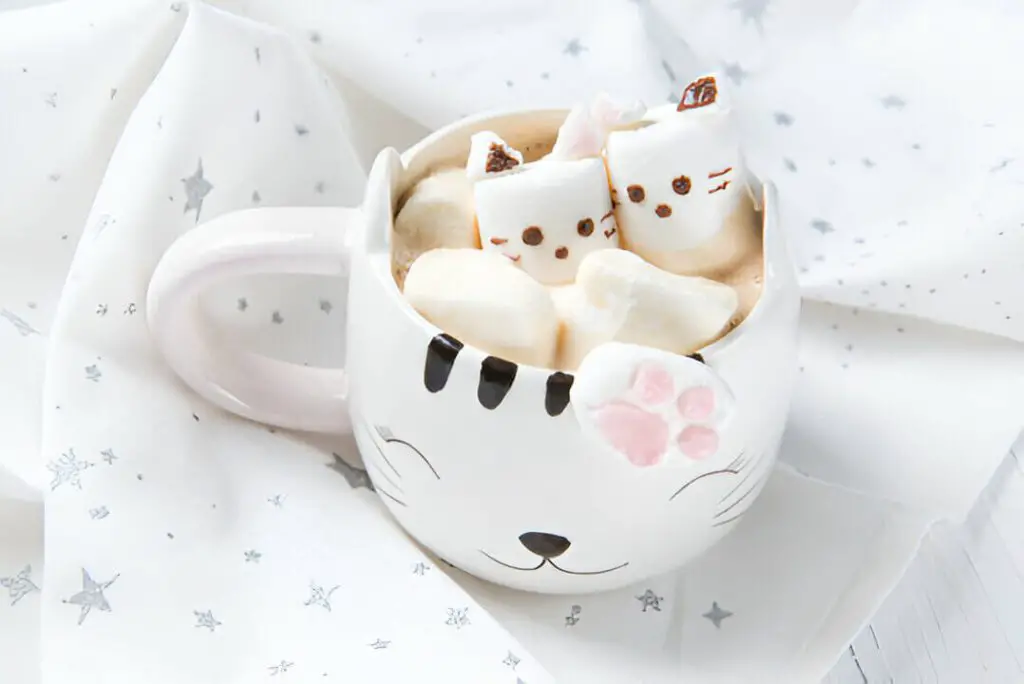
Now, just because marshmallows are off the table doesn’t mean your cat has to miss out on treats. There are plenty of safe and healthy alternatives that your feline friend will love.
Catnip: The Classic Favorite
Catnip is a hit with most cats. It’s natural, non-toxic, and can give your kitty a fun, temporary high. You can buy catnip toys or sprinkle dried catnip on their scratching post for a little extra entertainment.
Healthy Treats
There are many commercial cat treats available that are specifically formulated to be safe and nutritious. Look for treats with natural ingredients and no added sugars or artificial additives.
Homemade Goodies
Feeling crafty? You can make your own cat treats at home. Simple recipes using ingredients like tuna, chicken, or salmon are easy to whip up and are sure to be a hit. Just make sure to avoid any ingredients that are toxic to cats, like onions or garlic.
Foods to Avoid
While we’re on the topic of safe and unsafe foods, let’s quickly run through a list of things you should keep out of your cat’s reach.
- Chocolate: Contains theobromine, which is toxic to cats.
- Grapes and raisins: Can cause kidney failure.
- Onions and garlic: Can lead to anemia.
- Alcohol: Just a no-go. Even small amounts can be deadly.
- Artificial sweeteners: Especially xylitol, as mentioned earlier.
Conclusion: Keep the Marshmallows to Yourself
So, can cats eat marshmallows? The clear answer is no. While a small piece might not be deadly, the risks far outweigh any potential benefits. Stick to treats that are designed for cats, and you’ll keep your furry friend happy and healthy.
Remember, your cat relies on you to make the best choices for their health and wellbeing. So next time you’re roasting marshmallows, keep them out of your kitty’s reach and opt for a safer treat instead. Your cat will thank you, and so will your vet!
Stay tuned for part two of our deep dive into feline diets and what you need to know to keep your cat purring with delight.


